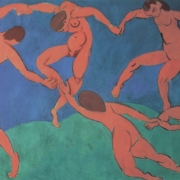Homogeneous female group from the view point of participant observation: critical reassesment of an experience
Abstract
In this paper I will talk about participant observation in a homogeneous female group and of some considerations that were born from this experience. I shall try to retrace the theoretical arguments that justify the group as a therapeutic instrument, and then pass to the motivations that support my choice to realize an observation experience in a female homogeneous group and the choice of a woman to woman therapy with a particular reference to the group’s development and to the questions due to the guiding hypothesis of my entire work, that is: the masochism issue and the supposed female specificity. At last I will analyze my counter-tranferencial position in an episode taken from some of the group’s sessions, finally end with a series of critical reflections.

